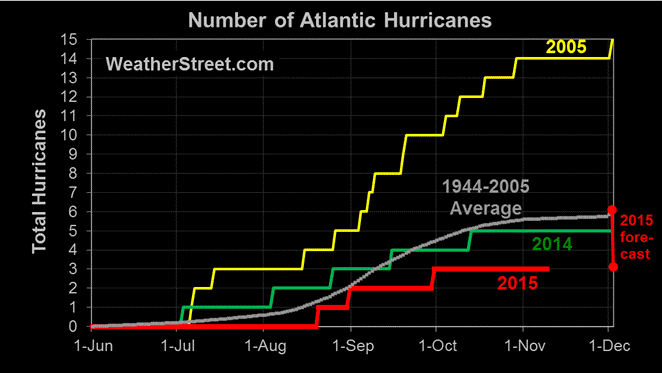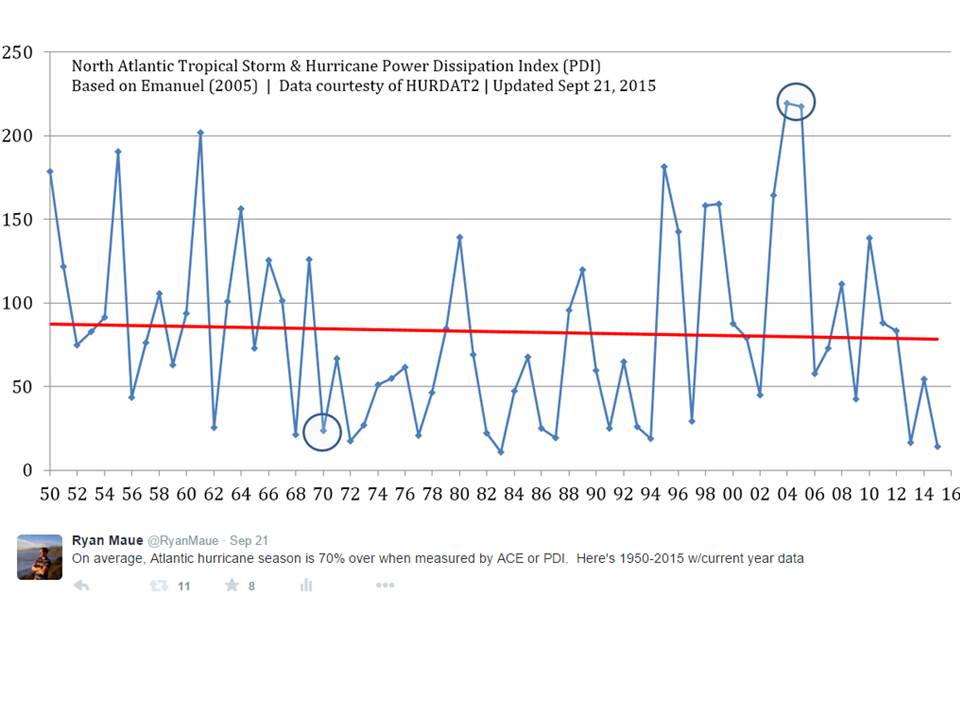As the 2015 Atlantic hurricane season nears its end, and as we enter the 11th year without a major hurricane (Cat3+) strike in the U.S., let’s look at how 2015 has shaped up.
Here are the cumulative number of North Atlantic hurricanes by calendar date for 2015, 2014, and 2005:
Those who are old enough to remember might recall that after the devastating 2005 season (remember Katrina?), this was going to be the “new normal” for Atlantic hurricane activity due to global warming. There were 15 hurricanes that year. The next year (2006) the bottom dropped out. The National Hurricane Center expected system after system to strengthen, and it almost never happened.
To update an old saying, “global warming is what you expect; weather is what you get.” This year we have had only three hurricanes so far. Tropical Storm Kate just formed this morning near the Bahamas, but it is not expected to reach hurricane strength and should remain offshore of the U.S. mainland.
Has there been any long term trend in Atlantic tropical cyclone activity? If so, it has been slightly downward. Here is Ryan Maue’s plot of the “Power Dissipation Index” since 1950, akin to his tropical “Accumulated Cyclone Energy” (ACE) index for the Atlantic, which monitors the total 3-D wind energy contained in tropical cyclones. It shows that the current lull in activity matches the lull back in the late 1970s and early 1980s:
I believe it was in the 1980s when the Director of the National Hurricane Center, Neil Frank, testified in congress that the lull in hurricane activity in the ’70s and ’80s had made people complacent, and people should expect an upturn in activity.
What was Dr. Frank’s reason for the warning? Global warming expectations? No, it was natural climate variations.
Neil Frank is now one of “us”…scientists who believe the human component of climate change — to the extent it exists — is not dangerous.
Now, it is true that global average tropical cyclone activity has increased again in the last year or so. But it remains to be seen whether this has anything to do with warmer temperatures or a long-term trend, since there are many conditions which must be satisfied for a tropical cyclone to form and intensify…not just ocean temperatures being a fraction of a degree higher.

 Home/Blog
Home/Blog





